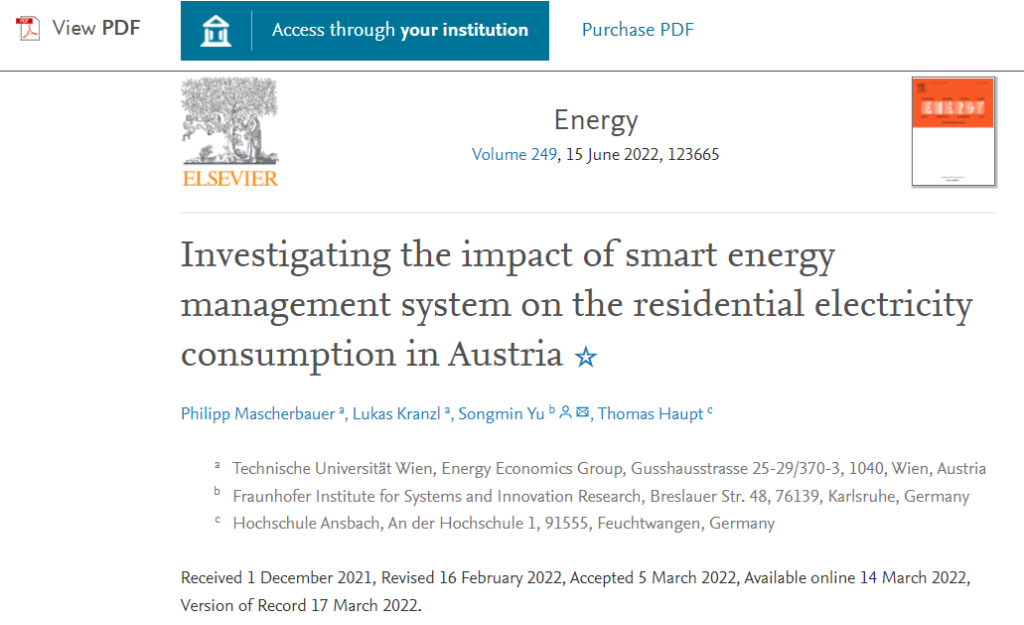This paper addresses the following question: How can smart energy management system (SEMS) influence the residential electricity consumption at both individual household and national level? First, we developed an hourly optimization model for individual households. The energy cost of an individual household is minimized under given assumptions on outside temperature, radiation, (dynamic) electricity price, and feed-in tariff. By comparing the optimization to the reference scenario, we show the impact of SEMS on grid-electricity consumption and photovoltaic (PV) self-consumption at the individual household level. Second, to we aggregate the results to the national level, we constructed a detailed building stock taking Austria as an example. By aggregating the results of 2112 representative households, we investigate the impact of SEMS in the residential building stock on the national electricity system. As a result, we found that for individual single-family-houses (SFHs) with PV (no battery) and heat pump adoption, SEMS can significantly reduce the grid-electricity consumption up to 40.7% for a well-insulated building. At the national level we found that, for the buildings with 5 kWp PV but without hot water tank or battery storage, SEMS can still reduce the grid-electricity consumption by 7.4% by using the building mass as thermal storage.
Mascherbauer, P., Kranzl, L., Yu, S., & Haupt, T. (2022). Investigating the impact of smart energy management system on the residential electricity consumption in Austria. Energy, 123665.
Full article available here



Comments are closed.